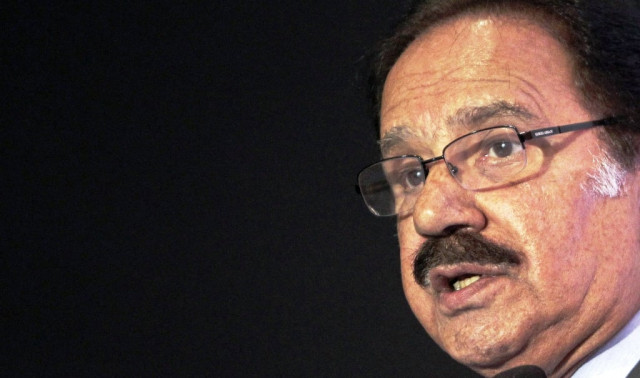Pakistan and India talk trade to boost ties
Discussions include opening trading posts and a liberal visa regime.

The trade ministers of Pakistan and India met in Mumbai on Tuesday in a lead up to talks being held on Wednesday (today) to discuss measures to overhaul ragged commercial ties which should help bolster a fragile peace process between the two countries.
Wednesday’s meeting is part of this year’s resumption of formal peace talks, known as the ‘composite dialogue’, which had broken off
after the Mumbai attacks in 2008.
The achievement in talks between Pakistan’s Makhdoom Amin Fahim and India’s Anand Sharma are likely to be modest — from opening trading posts to stamping more business visas — but even small moves can improve frayed ties. Trade across what is one of the world’s most heavily militarised borders is severely restricted both in the number of items that are permitted to be bought and sold, and the hours during which customs are open for business.
A liberal visa regime, signing of investment promotion, protection agreements and allowing banks to open branches in each other’s countries were some of the measures discussed to liberalise trade between India and Pakistan at talks between the trade ministers of India and Pakistan.
“The State Bank of India and the Reserve Bank of India have already desired to open up their branches in Pakistan and similar plans are being firmed up by Pakistani banks,” an Indian businessman said.
President of the Federation of Indian Chamber of Commerce and Industry (Ficci) Harsh C Mariwala, who initiated an interactive session, said Pakistan had maintained a list of 1,938 items, which India could officially export to the country. On the other hand, India does not impose such a restriction on imports from Pakistan. “India has granted most favoured nation (MFN) status to Pakistan whereas Pakistan is yet to reciprocate the Indian goodwill gesture,” he said.
Furthermore, Mariwala said formal trade between India and Pakistan had increased to $1.8 billion from $616 million in 2009-2010. However, he lamented that the lack of direct trade led to a surge of informal trade, including third country trade between India and Pakistan. The volume of informal trade underlines the potential of bilateral trade between the two countries, he added.
Businessmen on both sides said that a lack of investment promotion and protection agreements between India and Pakistan were a stumbling block to trade growth. Moreover, industry leaders admitted that there was a general lack of awareness about each others’ business capabilities. They suggested that trade fairs be organised and web portals be established to further bilateral trade and business relations. Exporters are forced to route the bulk of trade via a third party such as Dubai, raising business costs, slowing deliveries and inflating prices.
Islamabad wants India to lower what it says are unfair barriers to trade, such as cumbersome approval procedures for exporters selling anything from cement to fruit and vegetables.
Another sore point is India’s continued opposition to a scheme proposed by the European Union to boost textile exports from areas of Pakistan ravaged by floods with duty waivers.
Europe’s top trade official on Tuesday boosted expectations that India is ready to approve the scheme.
“We have also information ... whereby India would now be prepared to lift its veto,” EU Trade Commissioner Karel De Gucht told EU lawmakers at the European Parliament, which must also approve the duty breaks.
Formal approval by India could follow at the World Trade Organisation in early November and subsequently by the European Parliament, opening the way for European duties to be lifted on a list of Pakistani textiles and other products, including ethanol, as early as next January.
But how will this translate into the wider peace picture?
“There is no direct linkage between a successful trade meeting and success on the political front, or the Kashmir front, but eventually these things will feed into that wider process,” said Siddharth Varadarajan, editor of the Hindu newspaper and a well-known foreign policy expert.
“I think both sides, for better or worse, have decided to press ahead with the low-hanging fruit and hope that this improves the atmospherics; hope that it improves the overall picture in South Asia,” he said.
(Additional input from Reuters)
Published in The Express Tribune, September 28th, 2011.

1724319076-0/Untitled-design-(5)1724319076-0-208x130.webp)

















COMMENTS
Comments are moderated and generally will be posted if they are on-topic and not abusive.
For more information, please see our Comments FAQ